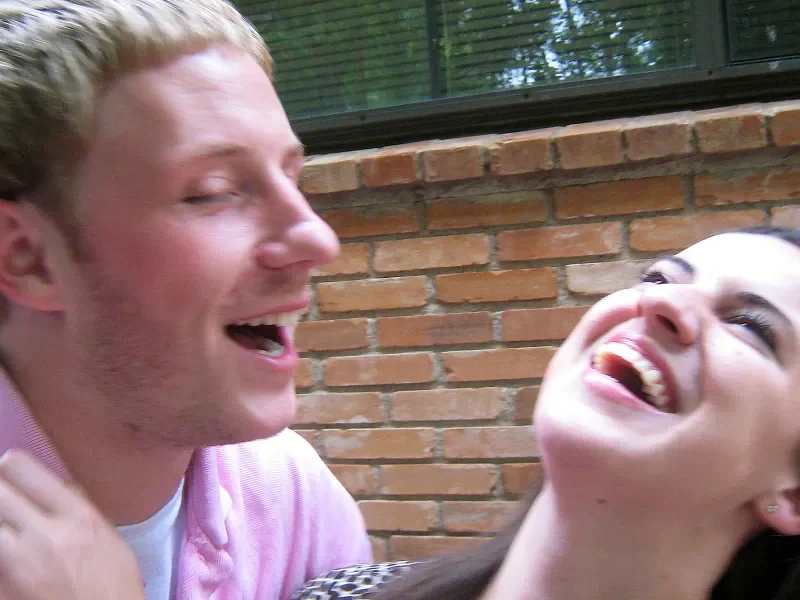Feeding with Love: The Beachside Breastfeeding Moment That Sparked a Firestorm
It was supposed to be a peaceful day at the beach. Izabele Lomax, a new mother from Maryland, had taken her 9-week-old son, Baker, to enjoy the sun and waves with family. As the heat climbed and her baby grew restless, she did what any nurturing mother would do—she breastfed him under the shade of a beach umbrella. But what began as a quiet act of care quickly became a viral controversy, igniting a national conversation about motherhood, modesty, and the right to feed a child in public.
The Moment Captured—and Shared Without Consent
Unbeknownst to Izabele, someone nearby had secretly recorded her breastfeeding and posted the video to Facebook. The post didn’t just share the footage—it shamed her. The caption read:
“I’m not shaming women who breastfeed their babies. I’m shaming the women who breastfeed in public with no respect to cover themselves up… Have some respect!”
The video blurred her and her baby’s faces, but Izabele recognized herself instantly when she stumbled upon the post in a mom group the next day. The shock was visceral. “Imagine waking up, getting on Facebook, and seeing this video of yourself yesterday at the beach,” she said in a TikTok response.
Her Response: Fierce, Honest, and Unapologetic
Izabele didn’t stay silent. She fired back with a video of her own, calling out the stranger who filmed her without permission. “You had every opportunity in the world to say something to me,” she said. “Not that I would have cared or stopped what I was doing. But you instead chose to post a video of me and my child on Facebook, publicly, for the world to see.”
Her tone was firm, but not angry. She explained that she chose not to cover up because of the high temperatures that day. Her baby was hot, hungry, and needed comfort. “Next time you see a mom breastfeeding in public, covered up or not, tell her how good of a job she’s doing,” she added.
The Internet Reacts: A Wave of Support
The original post was eventually deleted, but not before it sparked a tidal wave of responses. Thousands rallied behind Izabele, praising her courage and condemning the shaming. Comments poured in from mothers, fathers, healthcare professionals, and advocates for breastfeeding rights.
One user wrote, “Breastfeeding is not indecent. It’s life-giving. Shame on anyone who thinks otherwise.” Another added, “You’re doing exactly what your baby needs. That’s beautiful, not offensive.”
The incident also reignited discussions about the sexualization of breastfeeding. Izabele pointed out that the woman who posted the video claimed she had to “cover her son’s eyes” because of the exposed breast. “You’re the one sexualizing a breast to your own child,” Izabele said. “That’s the problem.”
Breastfeeding in Public: Legal, Natural, and Still Controversial
In the United States, breastfeeding in public is legal in all 50 states. Yet, despite legal protections, mothers continue to face stigma, judgment, and harassment. Whether in restaurants, parks, airplanes, or beaches, the act of feeding a child can provoke outrage from those who view it through a lens of discomfort or moral policing.
Experts argue that this discomfort stems from a cultural contradiction: breasts are celebrated in advertising and entertainment, yet shamed when used for their biological purpose. “We’ve normalized cleavage but stigmatized nourishment,” one lactation consultant noted.
Izabele’s story is not unique—but her response was. She refused to be shamed. She turned a moment of humiliation into a rallying cry for dignity and maternal rights.
The Deeper Layers: Motherhood, Autonomy, and Public Space
At its core, this incident isn’t just about breastfeeding. It’s about autonomy. It’s about who gets to decide what’s appropriate in public spaces. It’s about the tension between personal comfort and collective empathy.
Izabele’s decision to breastfeed uncovered more than skin—it exposed the discomfort many feel when confronted with raw, unscripted motherhood. There were no filters, no curated moments. Just a mother and her baby, doing what nature intended.
And that rawness made some people uncomfortable.
But discomfort is not a justification for censorship. As Izabele’s defenders pointed out, if someone doesn’t want to see breastfeeding, they can look away. What they cannot do is shame, record, and publicly humiliate a mother for caring for her child.
A Cultural Shift in Progress
The backlash against the shaming post is a sign of progress. More people are speaking out in defense of breastfeeding rights. More brands, influencers, and public figures are normalizing the act. Campaigns like #NormalizeBreastfeeding and #FedIsBest have gained traction, pushing back against outdated taboos.
Izabele’s story adds to this momentum. Her courage to speak out, her refusal to apologize, and her grace under pressure have made her a symbol of modern motherhood—unapologetic, empowered, and deeply human.
Final Reflections: Feeding Without Fear
On that beach, under the sun and the sound of waves, Izabele wasn’t trying to make a statement. She was just feeding her baby. But the world turned her moment into a battleground. And she met it with strength.
Her story reminds us that motherhood doesn’t pause for public opinion. Babies don’t wait for privacy. And love doesn’t need permission.
So the next time someone sees a mother breastfeeding—on a beach, in a café, on a park bench—they might remember Izabele. They might choose kindness over judgment. They might say, “You’re doing a good job.”

